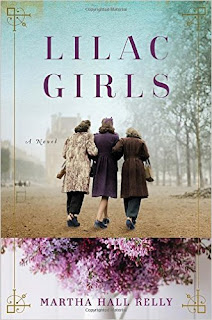Scribner, March 1, 2016.
Three Stars
In rural Alabama in the 1920s, Roscoe and his wife
and son are struggling to make ends meet on their family farm. Roscoe never
wanted to be a farmer – he is an electrician, and he realizes the potential of
harnessing the vast power of electricity. Meanwhile, his wife has inherited the
farm, and he is forced to work the land, a task for which he has little capability.
After his failure to competently run the farm, Roscoe
leaves day-to-day matters to his manager, and finds a bigger and better way to
contribute. He finds a way to build power lines on the farm, siphoning energy
from the state. Finally, things are going well for Roscoe, and he has gained
some respect from his wife and his son. That is, until the police show up at
his door, arresting him for the death of a young power company worker, who was
electrocuted and killed on Roscoe’s power lines. Roscoe receives a twenty-year
sentence, and his family abandons him, leaving him to serve his time alone.
All of the above plot points are described in the
book’s synopsis, and there really isn’t a whole lot more to the story, so don’t
expect any surprises in this novel. The plot seemed secondary in the author’s
writing style, with the events of Roscoe’s life only serving as a framework for
issues of redemption and familial love (or lack thereof). The novel is about
relationships – husband and wife, parent and child, and even the uneasy camaraderie
between the inmates at Roscoe’s prison. It is also about Roscoe’s loss of
dignity and self-respect – and his need to accept the past in order to move
forward.
The writing is sparse, marked by emotional
detachment. Reeves is a strong, talented writer, a manipulator of beautiful
language, yet I didn’t find that the actual story held my attention. The novel
alternates between Roscoe’s first-person narration of life in prison and
third-person flashbacks, describing how he ended up there. Regardless of his
punishment, Roscoe still sees electricity as his personal religion, finding
spiritual solace in its powerful potential.
Although he is repeatedly up for parole, Roscoe is
never released because he cannot repent for his actions. The descriptions of
scenes within the historical prison setting were interesting, and I was curious
to learn more about the jobs the prisoners were given within their confinement.
The novel generally questions the nature of punishment and of the penal system
overall: Roscoe had no intention of killing, and it makes no sense to lock him
up for his crime, yet that is how the system works.
Work Like Any
Other is an introspective novel. It is filled with
ideas, and the plot is almost incidental to the concepts Reeves is exploring.
The story is a quiet one, spoken softly, and it is lovely to read – it was just
a bit too slow for me.
I received this novel from Scribner and Netgalley in
exchange for an honest review.









